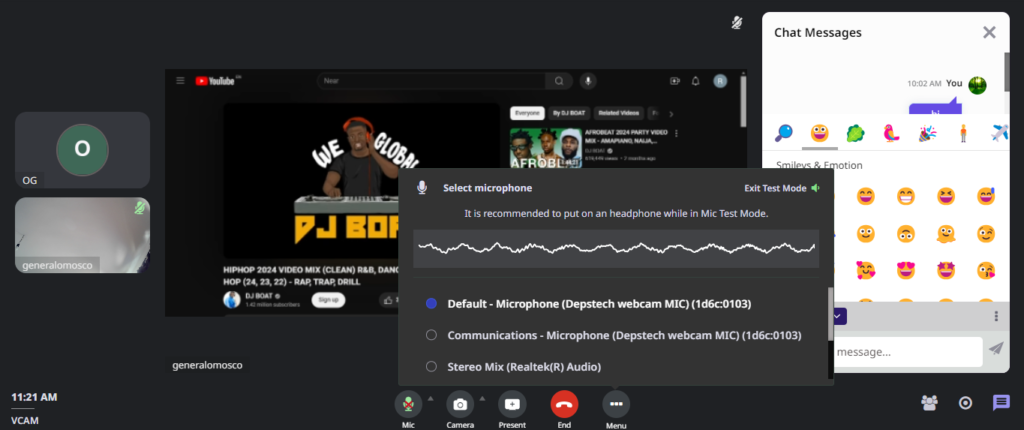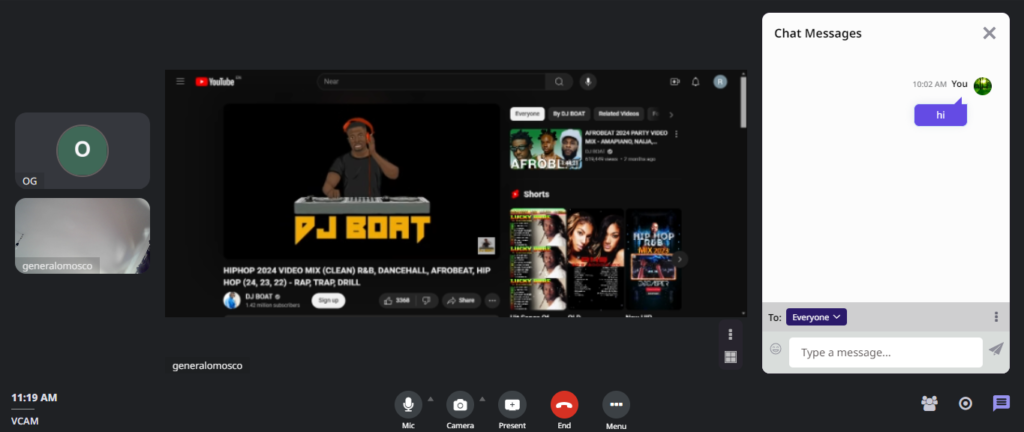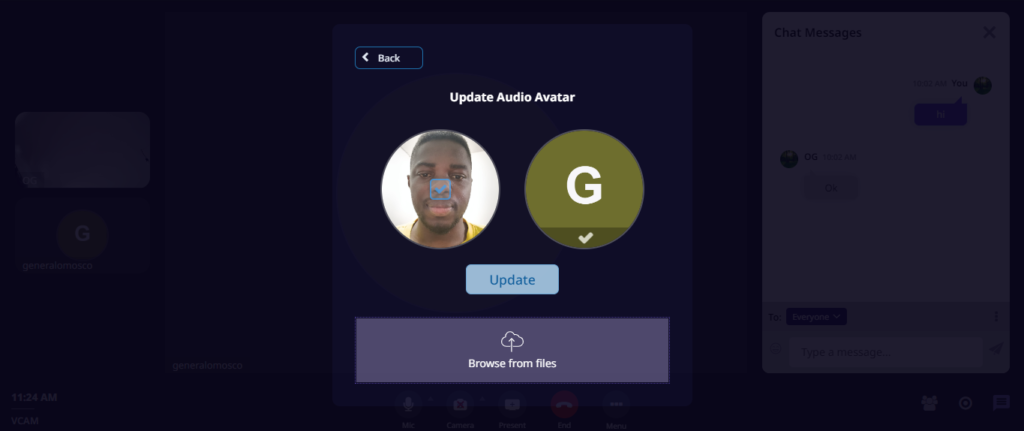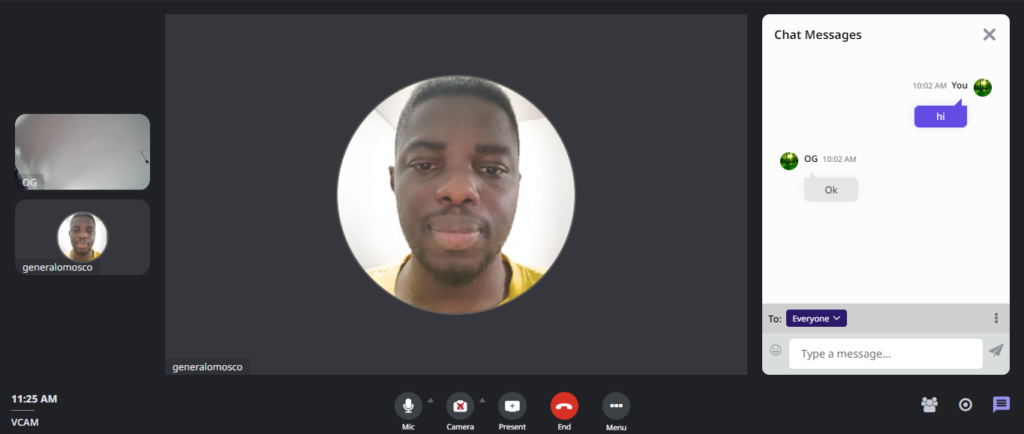As part of the project, I built both the signaling server and the client-side components using Node.js with TypeScript. The signaling server plays a crucial role in establishing and managing WebRTC connections between clients, ensuring seamless communication through features such as user authentication, session management, and the exchange of media control messages.
To handle the media distribution, I implemented the SFU media server using Go (Golang), a language known for its high performance and concurrency capabilities. The SFU architecture allows for optimal bandwidth usage by receiving media streams from participants and selectively forwarding them to other participants, rather than having each client send their media to every other client. This ensures scalability, making Vcam capable of handling multiple users simultaneously without degrading performance.
The project integrates various WebRTC technologies for low-latency, real-time communication, making Vcam suitable for a range of use cases such as business meetings, online education, and collaborative work environments. Additionally, the platform supports dynamic video layouts, chat functionalities, and user-friendly interfaces to enhance the overall user experience.
This project reflects my ability to work with modern web technologies, real-time communication protocols, and media streaming solutions to build efficient, high-performing applications. By combining the power of Node.js, TypeScript, WebRTC, and Go, I have created a flexible and scalable video conferencing solution that is well-suited for today’s digital collaboration needs.




